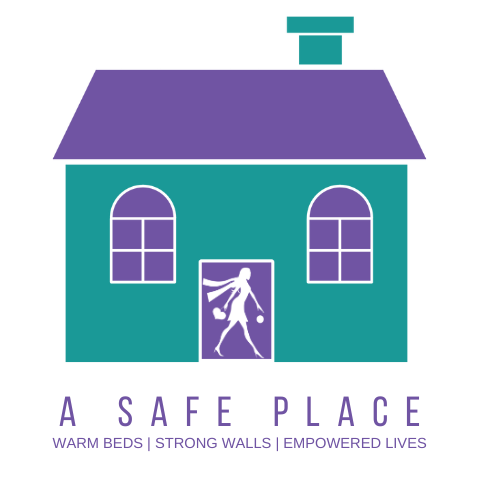A Safe Place

A Safe Place
Domestic Violence Shelter
VISION:
A Safe Place Will Assure Survivors And Their Children A Comprehensive Treatment Process In A Safe And Secure Environment In Jefferson County.
MISSION:
To Provide, With Dignity And Respect, A Comprehensive, Quality Program Including Education, Therapy/Counseling, Shelter Advocacy, Accessibility, Referral Network, Etc. To Any Battered Survivor And His/Her Children.
Donate:
Please click here to donate to A Safe Place. NOTE: Please include “A Safe Place” in the comment section of the donation form to dedicate your funds directly to them.
Viewing this website could place you in danger.
Computer use can be monitored and is impossible to completely clear searches.
Please ensure you are using a safe computer.
If you are in danger and do not have access to a safe computer, call our 24-hour crisis hotline at 636-232-2301 or call the National Domestic Violence Hotline at 1-800-799-SAFE.
If you are at a safe computer, read below for steps to stay safe.
Steps to Stay Safe
Use a safe computer at a library or community center. This is especially important when researching escape plans. Searching for bus tickets, shelter information, housing, or classified ads on a home computer can alert your abuser and increase your risk.
If you bookmark this or any other site about domestic violence, your abuser may see your computer activity. If you can, clear all web browser cache, cookies, and history. See instructions below for reducing risks.
Instructions for Internet Explorer
1. To delete temporary internet files, cookies (cryptic bookmarks that a Website can place on your computer to acknowledge your visit) and web addresses in your history:
2. On the menu at the top of the browser window, click on Tools>Internet Options…
3. In the dialog window that opens, click on the “General” tab.
4. In the section labeled “Temporary Internet Files”, if you wish to delete all files and cookies, click on the “Delete Files…” button. A confirmation dialog will open asking if you want to delete all files in your temporary internet folder. Click “OK.”
5. If you wish to selectively delete files and cookies, click on the “Settings…” button. A dialog window will open. Click on the “View Files…” button. A window will open with a list of all your temporary internet files and cookies. You can highlight the files you wish to delete and hit the delete key or click Edit>Delete.
6. To empty the History folder, click on the “Clear History” button and then the “OK” button.
TESTIMONIAL
Now… we are happy. We don’t have much, but we have each other, tons of good times and a sense of security. Life is good.”
SHELTER
A Safe Place is a residential shelter and program providing services to meet immediate needs of domestic violence survivors and their children. Abuse may be physical, sexual, emotional, verbal, psychological, or the destruction of property or pets..
Children who grow up in violent homes frequently learn violence as an acceptable means of resolving conflict or exerting control. These children are more likely to become victims or abusers as adults. A Safe Place provides a comprehensive program for the survivor and family, teaching healthy conflict resolutions and lifestyles.

Living Quarters
The emergency shelter accommodates six families in a community living home until they can support themselves or family.

Daily Activities
Residents share in daily activities and learn skills such as cooking, parenting education, and other life skills.

Goal-Based
Residents agree to a goal-based program which focuses on safety, healing, and financial independence.
KEY BENEFITS
Access to Care
Pets Referral Program
Referral & Resourcing
24-Hour Staff
Therapy, Counseling, & Coaching
Perpetrator Referral
SERVICES
Shelter Care
Survivors learn to break the cycle of violence through individual counseling, support groups, education, comprehensive parenting, fitness, and wellness programs. Feelings of dependency are replaced with self-sufficiency. Self-esteem, assertiveness, communication, and decision-making skills are taught, and assistance with nutrition, budgeting, housing, job searching, and career planning is provided. Additional services include:
- 24-Hour Crisis Hotline
- Emergency Shelter Program
- Residential Shelter Program
- Individual and Group Therapy
- Life Skills Group
- Domestic Abuse Education Group
- Court Advocacy
- Recreational Activities
- Child Play Therapy
- Art Therapy
- Crime Victims Advocacy
A Safe Place empowers survivors and their children to rise above the pain of domestic abuse and begin a safe and healthy life.
Community Groups
DOMESTIC VIOLENCE SUPPORT GROUP5
SEXUAL ASSAULT/ABUSE SUPPORT GROUP
These support groups, free and on-going, empowers survivors to rise above the pain of domestic abuse and begin a safe and healthy life.Learn from others’ experiences and support each other in the process of healing, change, and transformation.
Resources
Speak With Our Staff
Receive counseling, advocacy, referrals, and other services
636-232-2301
Missouri Coalition Against Domestic Violence
State-wide domestic violence resources and network
www.mocadsv.org
National Coalition Against Domestic Violence
National domestic violence resources and network
www.ncadv.org
Secret Financial Escape Plan
Steps to quietly build a credit history
https://www.nasdaq.com/articles/secret-financial-escape-plan-domestic-violence-victims-2014-12-29
If you know a friend of loved one who is being abused, consider taking these steps:
Set up a time to talk. Try to make sure you have privacy and won’t be distracted or interrupted. Let her know you’re concerned about her safety.
Be supportive. Listen to her. It may be very hard for her to talk about the abuse. Tell her that she is not alone and that people want to help.
Offer specific help. You might say you are willing to just listen, to help her with child care, or to provide transportation, for example.
Keep in mind that you can’t “rescue” your friend. She has to be the one to decide it’s time to get help. Support her no matter what her decision.
Let your friend know that you will always be there no matter what.
More Information:
Know the different warning signs of abuse.
Learn more ways to help a friend or loved one who is being abused.
Call the National Domestic Violence Hotline at 800-799-7233 or 800-787-3224 (TDD).
STORIES
A Safe Place is the only domestic violence shelter in Jefferson County.
A Safe Place was founded in 1987 to serve survivors of domestic violence. In 1998, the shelter opened at a new, undisclosed location to provide increased care and protection to the residents.
2023 Impact
- Received 1,066 hotline calls
- Offered 4,515 nights of safety
- Assisted with 98 orders of protection
- Provided 288 hours of court advocacy for survivors
- Provided 49 hours of professional therapy
- Provided 197 hours of crisis intervention services
- Provided 4,814 hours of case management services
- Unmet requests for shelter: 495 women, 275 children, and 4 men
In 2004, I was involved in a custody case due to domestic violence. I worked with A Safe Place to create a plan that would allow me to get out. During my stay at the shelter, I received more resources and support than I could have ever imagined. My healing process began, and I was finally gaining confidence and peace I had lost so long ago. My girls also had a safe place where they could talk about their experiences and find healing.
When I left the shelter, I couldn’t afford a new place to call home. I had to go back to a former residence known by my abuser. Shortly after I moved, he broke into my home and assaulted me and my best friend, threatening both of us with a knife. Thankfully, I escaped without injury, but my friend was hurt. The police came and I filled out another restraining order. Because I didn’t feel safe staying there with my children, I was forced to move in with my family. I did not want to burden them and I feared for their safety, but I had nowhere else to turn.
If I had access to transitional, safe housing after my stay at A Safe Place, I would not have been assaulted again or placed my family at risk. A Safe Place played a huge role in my journey to freedom from the abuse. I am where I am today because of the services they provided me at such a crucial time in my life. I have since moved on to a successful career, safe home life, happy family, and healthy marriage. If transitional housing had been available, I know the next step in my journey would have been less traumatic.
The continued safety net of A Safe Place would have given me the additional leverage needed to confidently take those steps back into society. Had transitional housing been available, it would have given me the opportunity to safely establish the financial stability and structure needed for a fresh start. Transitional housing allows survivors to prosper while still feeling safe. I hope that other women find the strength and courage to leave their abusers, and that, with your support, they have the resources and the time to safely gain full independence and stability.
